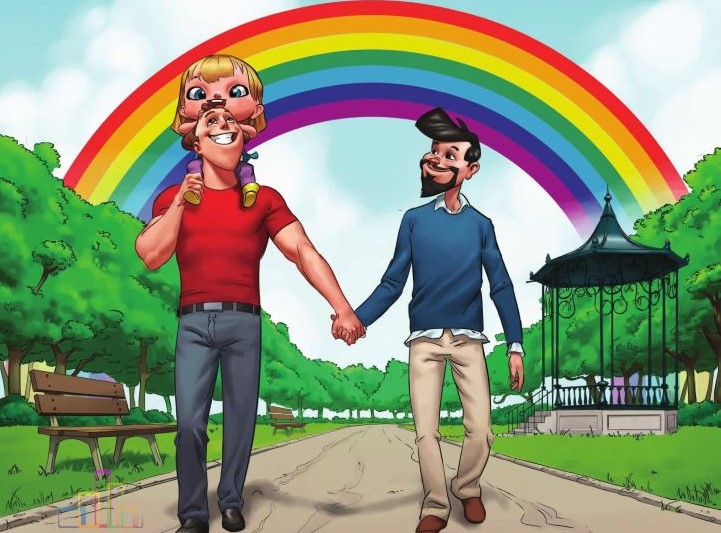LGBTIQ+
Rainbow Families in Croatia

Rainbow families
© Dugine obitelji- Find a link to the full download below -
FOREWORD
Two years ago, political scientist Nikolina Herceg Kolman presented an exciting and interesting analysis of how respect for LGBT* rights became a “key issue” and even a “litmus test for being European” in Croatia, which began accession negotiations with the EU in the early 2000s.
However, she also made it clear that this development was not a foregone conclusion, but the result of tough negotiations and close cooperation between EU institutions, political parties, and civil society groups and organizations.
The fact that Croatia today, as Herceg Kolman writes, has the most progressive LGBT* legislation compared to other Central and Eastern European EU countries shows how necessary and important civil society engagement is when it comes to strengthening civil rights - and that good results can be achieved despite considerable societal counterpressure.
The analysis now presented can be understood as a follow up to this history of development. Starting with the 2014 law on same-sex civil partnerships, which grants same-sex couples almost all the rights that married couples also have, it focuses on adoption law, which has recently seen decisive changes.
Although this issue remains hotly contested within society, the Supreme Administrative Court ruled in a May 2022 decision - surprisingly for many - that same-sex couples can now also apply to adopt.
Even if only practice in the future will show whether this ruling will also have an effect and can be evaluated as progress, this can probably already be described as another milestone in the fight against discrimination. After all, the everyday life of “rainbow families” is now openly discussed in Croatia. For generations this was a taboo.
But Nikolina Herceg Kolman is well aware of the fragility of the legislation and its implementation:
“Even so, nothing is ever certain and fixed when human rights are concerned“. And she adds:
“The strongest guarantee for further development is still the EU membership.”
Michael Roick
Project Director Western Balkans
2019-2022

